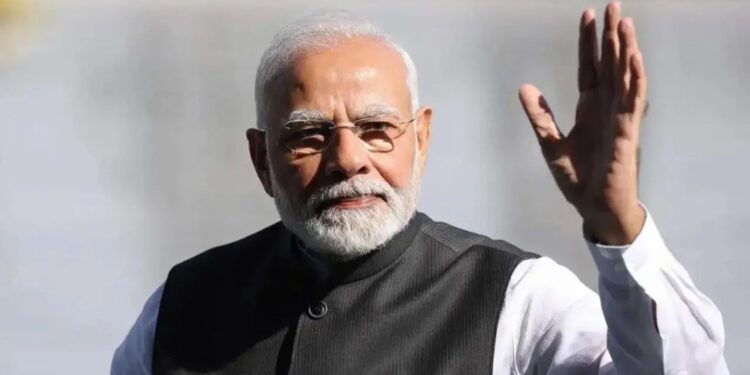On Tuesday, Prime Minister Narendra Modi reiterated his commitment to respecting the limits set by India’s Constitution and asserted that he has never sought to overstep into the domain of other branches of government. He emphasized the importance of working within constitutional boundaries at the Supreme Court event marking the 75th anniversary of India’s Constitution.
“I have always made it a point to stay within the scope of the responsibilities entrusted to me by the Constitution. I have not attempted any encroachment,” PM Modi said, reflecting his respect for the constitutional framework.
Although he did not go into further detail, he added, “I have expressed my views while maintaining the boundaries set for me. Sometimes, a hint is enough; there is no need for elaborate explanation.” This implied that he has always been mindful of his role and refrained from over-explaining.
The event was attended by vital legal figures, including Chief Justice of India (CJI) Sanjiv Khanna, Justices BR Gavai and Surya Kant, Attorney General R. Venkataramani, Union Minister of State for Law Arjun Ram Meghwal, Supreme Court Bar Association President Kapil Sibal, and Bar Council of India Chairman Manan Kumar Mishra, was a significant occasion for discussing the Constitution’s role in shaping India’s governance.
In addition to his remarks on constitutional boundaries, the Prime Minister took time to commemorate the anniversary of the 26/11 Mumbai terror attacks. “We cannot forget the lives lost in the 26/11 attacks. I offer my tributes to those who died that day, and I reaffirm that any terrorist group targeting India’s security will face a firm and resolute response,” Modi declared.
Earlier in the event, Chief Justice Khanna underscored the importance of respecting the distinct roles assigned to each branch of government. He highlighted that judicial independence should not be viewed as a barrier but as a vital bridge that helps sustain the Constitution, protect fundamental rights, and ensure the integrity of the governance framework. “Judicial independence, when properly understood, serves as a bridge that nurtures the Constitution, strengthens the rule of law, and supports the democratic fabric of India.”

















